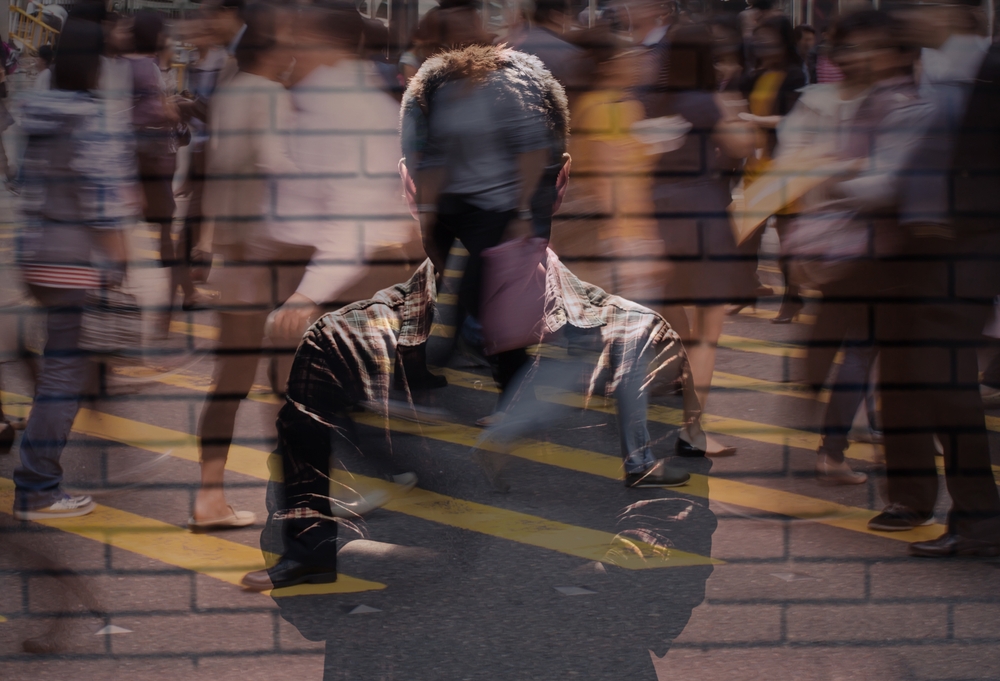Detroit man’s small act of kindness returned in a big way

What do you do when life leaves you with nothing left to give? Most of us would hold on tight to what little we have. But sometimes, in the middle of struggle, a choice to give anyway can unlock something bigger than we could ever imagine.
Curtis Dixon was in that place. His lights had been shut off, his bills were past due, and he was on his way to pawn his wedding ring just to survive. That’s when he crossed paths with a stranger who appeared to be blind, asking for help. Curtis could have walked by. He could have said no. Instead, he chose to help, even promising to give money he didn’t have yet. That one decision, born from compassion in a moment of scarcity, would set in motion a chain of events that would change his life—and remind the rest of us what kindness can really do.

Kindness in the Midst of Struggle
Curtis Dixon was standing at a crossroads no one wants to face. His electricity had been cut off, bills were piled on the table, and the only way forward seemed to be pawning his wedding ring—one of the few symbols of love and memory he still held close. That small band of metal, once priceless, was about to become his only ticket to light a darkened home. Many of us have faced our own moments of scarcity, when survival forces us to make choices that feel like a loss of more than money. Curtis was in that exact place, ready to trade something irreplaceable for a little relief.
On his way into Detroit’s American Jewelry and Loan, a man who appeared to be blind stopped him with a simple request: help standing up. Without hesitation, Curtis extended his hand. Despite the weight he was carrying, he chose to respond to another’s need. “I told him God had told me to help him,” Curtis would later say. That moment, born of instinct and faith, wasn’t about recognition or reward. It was about doing what felt right, even when life gave him every excuse not to.
The stranger didn’t stop there. He asked Curtis if he could spare a couple of dollars. Most people in Curtis’s position might have declined. But instead, he explained the truth. He had no money to give—not yet. Still, he promised that once he pawned his wedding ring, he would have something to share. Imagine that. A man with nothing to spare was already planning how to give. That willingness, spoken in honesty and humility, would soon change everything.
The Reveal That Changed Everything
What Curtis didn’t know was that the man was not blind at all. He was Zach Dereniowski, better known as MDMotivator, a content creator who has built a global following by staging social experiments that shine a light on kindness. Zach revealed his true identity and, in that moment, Curtis’s life shifted course. The electricity bill that had driven him to pawn his wedding ring? Paid off on the spot. The darkness that had crept into his home was pushed back with light.
The generosity didn’t end there. Zach returned with $5,000, a direct lifeline that gave Curtis breathing room he hadn’t felt in a long time. Then came another surprise: American Jewelry and Loan, the very shop where Curtis had gone out of desperation, contributed $2,500 of their own. For Les Gold, the shop’s owner, the act wasn’t about business—it was about being moved by the sincerity of what they had witnessed. “When we walked outside, I was crying because it brought out such emotion,” he admitted. That is the power of authentic compassion: it softens even the hardest corners of life.
Soon after, Curtis was handed the keys to a new car. For someone living paycheck to paycheck, a car isn’t just transportation—it’s stability. It’s the ability to get to work, buy groceries, and live without the constant fear of being stranded by life’s unpredictability. Every new gift felt like another door opening where Curtis had only seen walls. From the man who had been ready to pawn his ring, he was now stepping into a future defined not by scarcity but by possibility.
Each gift was transformative, but what truly made the story powerful was the authenticity of the moment. Curtis hadn’t been trying to impress anyone. He hadn’t asked for help. He had simply acted with compassion, and in doing so, revealed a truth about himself that resonated with millions of people.

When the World Joined Hands
The story could have ended there, with Zach and a few local gestures of generosity. But that’s not what happened. The video of Curtis’s kindness began to spread online, reaching people around the world. Something in his simple act of offering, even when he had nothing, struck a universal chord. Donations began to pour in, each one from someone who wanted to be part of this ripple of kindness. Within days, the total grew into a staggering $100,000.
This wasn’t the work of corporations or billionaires. It was everyday people giving what they could. A few dollars here, a few more there, until together they created a life-changing amount. Zach summed it up best: “Everyone can do these small acts because the small acts are what matters.” Curtis’s willingness to give sparked generosity in strangers he would never meet. His story became proof of what researchers at UC Berkeley have long said: kindness is contagious. When we witness compassion, our brains light up in ways that push us to join in.
For Curtis, the global support was overwhelming. “I keep asking him why. Why did you help me? Because God told me to help you. First and foremost,” he said. His faith shaped the way he processed the gifts, grounding the extraordinary in a sense of divine timing. To him, this wasn’t random luck. It was a lesson written into his life about what happens when you choose to act with integrity, even when it costs you.
His hardship had become a vessel for something larger than himself. And the world—often so quick to amplify negativity—chose this time to amplify light.
The Deeper Truth About Giving
There’s something crucial to understand about Curtis’s story. The lesson isn’t that if you help someone, $100,000 will magically appear in your bank account. Most acts of kindness won’t go viral. They won’t come with headlines or rewards. But that doesn’t make them less powerful. The value of kindness is not measured by the outcome—it is measured by the act itself.
Curtis didn’t have to give. He could have ignored the man, brushed past him, or said he was too burdened to help. Instead, he leaned into compassion. That decision, in its purest form, was enough. And yet, that act set off a ripple effect he couldn’t have predicted. This is the heart of the lesson: when we show up for others, especially when it’s inconvenient, we plant seeds. Sometimes they bloom in ways we’ll never see. Other times, they return to us in abundance.
The world often tells us to look out for ourselves first, to protect, to hoard, to preserve. But the irony is that in giving, we often receive more than we ever imagined. Curtis Dixon’s story shows us that kindness is not a luxury for when life is easy—it’s a choice we can make even in our hardest moments. And when we do, it can change everything.

Your Invitation to Act
Now it’s your turn. Not to wait for cameras or viral moments, but to decide how you will show up today. Will you hold open a door? Offer a kind word? Share a meal? These may seem small, but so did Curtis’s gesture. He didn’t change the world with money. He changed it with his heart.
We can’t control when or how kindness circles back to us. But we can choose to keep it moving. And in a world that often feels dark, each act of compassion is a light. When enough lights come together, they become a fire that cannot be ignored.
Curtis Dixon’s story reminds us of the truth we forget too often: we don’t need to have everything to give something. And sometimes, giving from our emptiness is the most powerful gift of all. The question now is, what ripple will you create?
Loading...

